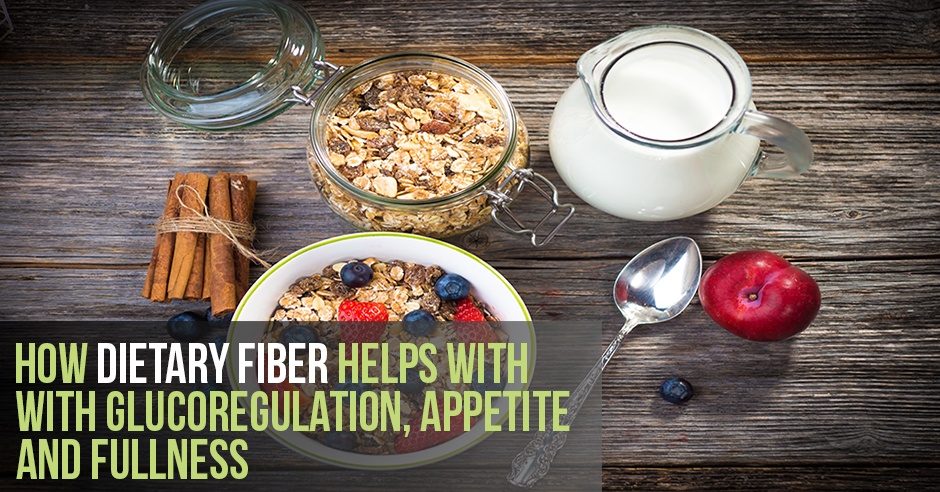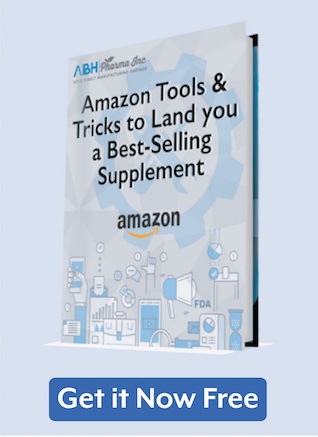Glucoregulation is a big deal.
We talk about low blood sugar, sugar crashes, high blood glucose levels as though they should be common everyday topics.
In a healthy body or society, these phrases should barely be known and the fact that they are now marketing terms to sell products is itself a symptom of a different disease.
That is not just a cheeky statement. Instead, it is the sound of an open niche market for organic supplement manufacturers.
The Role of Dietary Fiber in Private Label Weight Loss Supplements
The common person does not understand that dietary fiber is a huge family of food types. Further, they do not understand that not all fiber is the same.
For example, there is soluble fiber and dietary fiber. One enters the blood stream while the other only passes through the digestive track. Both have profound effects, but the job they do is very different.
Yet, both are considered "dietary fiber."
A study that appeared in Metabolism back in 2007 really drives home the point that not all dietary fiber is the same.
The study looked three groups of rats who were fed a high-fat diet and one of three kinds of dietary fiber.
The purpose was to see how dietary fiber impacted weight gain, carbohydrate metabolism, and gastric ghrelin gene (hunger hormone lenomorelin) expression.
The three types of dietary fiber used were psyllium, cellulose, and sugar cane fiber.
After 12-weeks of use, the results were staggering. The baseline pre-study aspects remained the same, except for body weight.
Of the three groups, the one that's diet included cellulose weighed more while the weight of the groups that received psyllium and sugar cane fiber were significantly lower.
Further, the group that ate sugar cane fiber has a leaner body mass with reduced fat concentrations in comparison to the group that consumed cellulose.
Other changes included a reduction in fasting plasma glucose and insulin levels in the groups that consumed the psyllium and sugar cane fiber over the group that consumed cellulose.
Even more amazing was the effect of stomach Ghrelin Gene expression - the gene that makes us feel hungry.
For the control group and the group that received cellulose, the Ghrelin Gene expression remained the same between the levels of the baseline lab work.
However, the groups that received psyllium and sugar cane fiber were drastically lower. Their response to the dietary fiber were fewer incidences of hunger.
That's powerful. That is opportunity knocking. Something as simple as sugar cane fiber or psyllium fiber that causes the gene that screams "we are starving" to remain quiet.
The results are that we eat less and lose weight without all of the exercise that other weight loss programs push.
The rats in this experiment were not exercised and still they lost weight and fat mass while eating a high-fat diet.
That's marketable and it gets better.
Glucoregulation, Appetite, and Fullness
Glucoregulation is one of the keys to weight loss. It is the interaction between the hormones insulin and leptin that cause fat storage and fat usage. So you can see how whether there is real or artificial sugar in your supplement is important.
Insulin being part of the formula that stores fat, and Leptin being part of the formula that our body uses to burn fat.
The two are yin and yang.
Another study in Gastroenterology 2011, points out that soluble dietary fiber has the most positive effects on glucoregulation - the evening out of glucose levels in the bloodstream.
What this study shows us is the niche market for supplements that target weight loss through the education of consumers for positive sources of dietary fiber. In this case either psyllium or sugar cane fiber.
Both psyllium and sugar cane fiber help with glucoregulation. That is why the insulin levels for those two study groups were lower.
By effecting glucoregulation in a positive way those two forms of dietary fiber helped prevent the triggering of the Ghrelin Gene Expression - The rats were not hungry.
Dietary fiber plumps up to make us feel full. That is part of the process that helps to avoid the screaming starvation feeling that we get when the Ghrelin Gene Expression is in full effect.
The Big Easy
The same study that appeared in Gastroenterology in 2011 points out how dietary fiber can be used as part of a system to control diseases with the metabolic syndrome family such as obesity.
Metabolic syndrome is a serious condition with negative health outlooks.
Heart disease, increased belly fat, diabetes, are all diseases or conditions that are associated with metabolic syndrome.
Yet, dietary fiber plays a role in reducing metabolic syndrome. It has been shown to help balance glucose, curb the appetite by helping us to feel fuller and by not activating the gene that makes us feel hungry. In fact, dietary fiber is an all around powerhouse.
For example, soluble fiber helps to absorb fats that we do digest. The dietary fiber that we cannot absorb helps to absorb fats in our stomach and intestines before we can absorb it.
The result is the dietary fiber takes fats consumed out the system before the system can burn them or store them.
That means that we have to burn stored body fat and that is precisely why the two groups of rats who ate psyllium or sugar cane fiber lost fat and lost weight. That too is marketable.
While both study's pointed towards obesity and metabolic issues, the results are applicable across the entire weight loss industry. Imagine the draw that a supplement with sugar cane fiber would have to a bodybuilder that need to lose stubborn belly fat without using an injectable.
What about the guy who has been pushing his body all year long to bulk up with lean muscle but now must overcome the starvation feeling of cutting down on protein shakes.
Remember that relationship between insulin and Leptin? They are part of the complex process that triggers the gene that causes us to overeat.
A proprietary blend of dietary fiber in conjunction with education can create a market "craving" that helps solve these problems in a healthy and sustainable way.
How about the ladies who want to drop ten pounds but do not have time to go to the gym every day?
The market for what dietary fiber offers is huge. Imagine being able to bottle a blend of dietary fiber that helped people drop weight without being hungry, or getting the shakes because their blood glucose levels plummeted.
The reality is that this could be a reality. In fact, there is a whole line or products hidden in the results of these studies.
With the proper marketing, a little positive content, and Boom - the next big product for the diet industry emerges under your label.
The question for you is whether or not there is a place for this type of product on your shelves?







